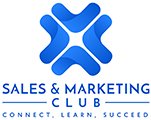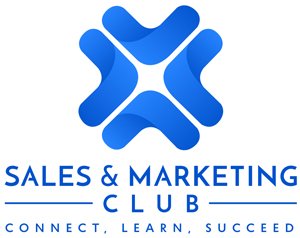“Continuous learning is the minimum requirement for success in any field.” – Brian Tracy
Introduction
In an age where change is the only constant, staying ahead in sales trends is more challenging than ever. Sales professionals must navigate an ever-evolving landscape shaped by technological advancements, shifting consumer preferences, and emerging market dynamics. Continuous learning is no longer optional but a fundamental necessity for those seeking to maintain a competitive edge and drive success in their careers. This blog delves into the multifaceted nature of continuous learning and its pivotal role in keeping sales professionals ahead of the curve.
The Importance of Continuous Learning in Sales
Sales is an ever-changing field where yesterday’s successful strategies may become obsolete today. Continuous learning empowers sales professionals to stay adaptable and responsive to new challenges. By consistently updating their knowledge and skills, salespeople can foster innovation, enhance problem-solving abilities, and remain informed about the latest tools and techniques that drive sales success. Embracing a mindset of perpetual learning helps professionals not only survive but thrive in a competitive environment.
Embracing Technological Advancements
Technology is a key driver of transformation in the sales industry. Advances such as Customer Relationship Management (CRM) systems, artificial intelligence (AI), and data analytics have revolutionized how sales teams operate. Continuous learning involves staying updated with these technologies, understanding their applications, and integrating them into sales processes. This knowledge helps sales professionals leverage technology to improve efficiency, gain insights into customer behaviour, and enhance overall sales performance.
Understanding Consumer Behaviour
Consumer behaviour is influenced by a range of factors, including social trends, economic conditions, and technological developments. Continuous learning helps sales professionals stay attuned to these changes and adapt their strategies accordingly. By analysing consumer behaviour trends, salespeople can tailor their approaches to meet the evolving needs and preferences of modern buyers. This understanding enables the creation of more personalized and impactful sales strategies that resonate with customers.
Developing Emotional Intelligence
Emotional intelligence (EI) refers to the ability to recognize, understand, and manage emotions in oneself and others. In sales, high EI is crucial for building strong relationships with clients and understanding their needs. Continuous learning in emotional intelligence helps sales professionals enhance their ability to connect with clients on a deeper level, leading to increased trust and loyalty. Developing EI also aids in managing stress and maintaining a positive mindset in challenging sales environments.
Leveraging Data Analytics
Data analytics has become a cornerstone of modern sales strategies. By analysing data, sales teams can gain valuable insights into customer behaviours, market trends, and sales performance. Continuous learning in data analytics empowers sales professionals to make informed, data-driven decisions. This knowledge helps in identifying opportunities for growth, optimizing sales processes, and achieving better outcomes by utilizing data to guide strategy and improve performance.
Mastering Digital Marketing
Digital marketing is a crucial component of contemporary sales strategies. Understanding the latest digital marketing trends, such as social media marketing, search engine optimization (SEO), and content marketing, is essential for sales professionals. Continuous learning in digital marketing enables sales teams to effectively leverage online platforms to reach target audiences, generate leads, and convert prospects into customers. Staying updated with digital marketing strategies ensures that sales professionals can maximize their online presence and impact.
Adapting to Remote Selling
The shift to remote work has significantly altered the sales landscape. Remote selling demands different skills and approaches compared to traditional in-person sales. Continuous learning helps sales professionals adapt to remote selling environments by mastering virtual communication tools, developing strategies for remote engagement, and maintaining client relationships from a distance. Understanding best practices for remote selling is crucial for closing deals and maintaining productivity in a virtual setting.
Enhancing Negotiation Skills
Negotiation is a fundamental skill in sales that requires ongoing refinement. Sales professionals need to stay updated on the latest negotiation techniques and strategies to handle complex deals effectively. Continuous learning in negotiation helps salespeople develop the confidence and skills necessary to navigate challenging negotiations, overcome objections, and achieve mutually beneficial outcomes. Mastering negotiation skills is essential for closing deals successfully and fostering strong client relationships.
Building Resilience
Sales can be a high-pressure field that demands resilience. Continuous learning in areas such as stress management, time management, and self-care helps sales professionals build resilience, allowing them to stay focused and productive even in challenging situations. Developing resilience is crucial for maintaining motivation, overcoming setbacks, and sustaining performance in a demanding sales environment.
Emphasizing Customer-Centric Selling
Customer-centric selling focuses on creating value for the customer rather than merely pushing a product or service. Continuous learning in customer-centric approaches ensures that sales professionals prioritize the customer’s needs and preferences. By adopting a customer-centric mindset, salespeople can build long-term relationships, increase customer satisfaction, and drive repeat business. Emphasizing the customer’s perspective helps in developing more effective sales strategies and enhancing overall sales performance.
Cultivating a Growth Mindset
A growth mindset is the belief that abilities and intelligence can be developed through dedication and hard work. In sales, a growth mindset fosters continuous improvement and resilience in the face of setbacks. Continuous learning supports the development of a growth mindset, empowering sales professionals to embrace challenges, learn from failures, and persist in their efforts to achieve success. Adopting a growth mindset is essential for ongoing development and long-term career success.
Staying Informed About Industry Trends
The sales industry is influenced by a variety of market and industry trends, including economic shifts, regulatory changes, and technological advancements. Continuous learning involves staying informed about these trends and understanding their impact on sales strategies. By keeping up with industry developments, sales professionals can anticipate changes, adjust their approaches, and remain competitive in a rapidly evolving market.
Networking and Professional Development
Networking is a powerful tool for continuous learning and professional growth. By connecting with other sales professionals, attending industry events, and participating in professional development opportunities, salespeople can share knowledge, gain new insights, and stay updated on best practices. Networking fosters collaboration and innovation within the sales community, providing valuable opportunities for learning and growth.
Leveraging Social Selling
Social selling involves using social media platforms to connect with and engage potential clients. This approach requires a different set of skills compared to traditional selling methods. Continuous learning in social selling helps sales professionals understand how to effectively use social media to build relationships, establish credibility, and drive sales. Mastering social selling techniques is essential for reaching and converting prospects in the digital age.
Utilizing Sales Enablement Tools
Sales enablement tools provide sales teams with the resources and information needed to sell more effectively. Continuous learning about these tools ensures that sales professionals can fully leverage their capabilities, from content management systems to sales training platforms. By utilizing sales enablement tools, sales teams can enhance their productivity, streamline their processes, and improve overall sales performance.
Developing Presentation Skills
Effective presentations are crucial for persuading potential clients and closing deals. Continuous learning in presentation skills helps sales professionals develop compelling narratives, design engaging visuals, and deliver persuasive pitches. Mastering presentation skills enables salespeople to effectively communicate the value of their offerings, capture the attention of their audience, and achieve successful outcomes in sales meetings and presentations.
Fostering Creativity and Innovation
Creativity and innovation are essential for developing unique sales strategies and solutions. Continuous learning encourages sales professionals to think outside the box, experiment with new approaches, and find creative ways to address challenges. By fostering a culture of innovation, sales teams can differentiate themselves from competitors, explore new opportunities, and achieve better results.
Understanding Global Markets
In a globalized world, understanding international markets is crucial for sales success. Continuous learning about global market dynamics, cultural differences, and international sales strategies enables sales professionals to expand their reach and effectively engage with clients from diverse backgrounds. Knowledge of global markets helps in navigating international business environments and tailoring sales approaches to meet the needs of a global audience.
Integrating Sales and Marketing Efforts
Aligning sales and marketing efforts is critical for achieving business goals. Continuous learning about integrated sales and marketing strategies ensures that sales professionals can collaborate effectively with marketing teams. By creating cohesive campaigns that drive leads and conversions, sales and marketing alignment enhances overall sales effectiveness and contributes to business growth.
Implementing Agile Sales Methodologies
Agile sales methodologies emphasize flexibility, collaboration, and iterative improvements. Continuous learning in agile methodologies helps sales teams stay adaptable, respond quickly to changes, and continuously improve their processes. Adopting agile practices enables sales professionals to enhance their efficiency, adapt to new challenges, and achieve better results through iterative and incremental improvements.
Enhancing Customer Experience
Customer experience (CX) is a key differentiator in today’s competitive market. Continuous learning about CX best practices ensures that sales professionals can create positive and memorable experiences for their clients. By focusing on delivering exceptional customer experiences, salespeople can foster loyalty, encourage repeat business, and build a strong reputation for their brand.
Building Personal Branding
Personal branding is essential for establishing credibility and trust in the sales field. Continuous learning about personal branding strategies helps sales professionals build a strong online presence, showcase their expertise, and connect with potential clients. Developing a personal brand enhances a salesperson’s visibility and reputation, contributing to long-term career success and business growth.
Understanding Behavioural Economics
Behavioural economics explores the psychological factors that influence consumer decisions. Continuous learning in this field enables sales professionals to understand the underlying motivations of their clients and tailor their sales approaches accordingly. By applying insights from behavioural economics, salespeople can drive better sales outcomes and create more effective strategies that resonate with consumer behaviour.
Leveraging Video Marketing
Video marketing has become an increasingly important tool for engaging potential clients. Continuous learning about video marketing trends and techniques ensures that sales professionals can create compelling video content that captures their audience’s attention. Leveraging video marketing effectively enhances client engagement, drives conversions, and strengthens overall sales efforts.
Focusing on Sustainability and Ethics
Sustainability and ethical practices are gaining importance among consumers. Continuous learning about sustainable and ethical sales practices helps sales professionals align their strategies with these values. By emphasizing corporate responsibility and ethical behaviour, salespeople can build trust and credibility with clients who prioritize sustainability and ethical considerations.
Utilizing Customer Feedback
Customer feedback is a valuable source of insights for continuous improvement. Continuous learning about effective methods for collecting and analysing customer feedback enables sales professionals to identify areas for improvement, enhance their offerings, and better meet the needs of their clients. Utilizing customer feedback helps in refining sales strategies and improving overall customer satisfaction.
Conclusion
Continuous learning is an ongoing commitment to growth and improvement, essential for success in the ever-evolving field of sales. By embracing a proactive approach to learning, sales professionals can enhance their skills, stay informed about industry developments, and maintain a competitive edge. In sales, as in life, the journey of learning never truly ends.


















